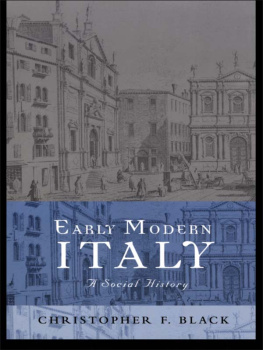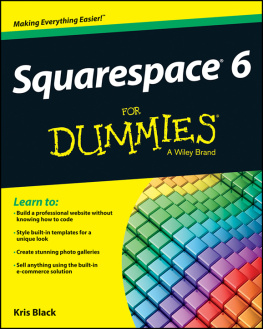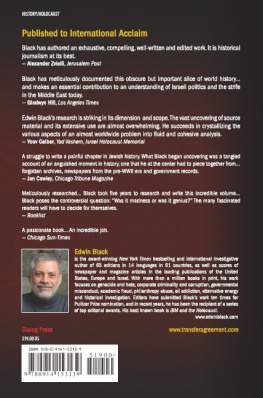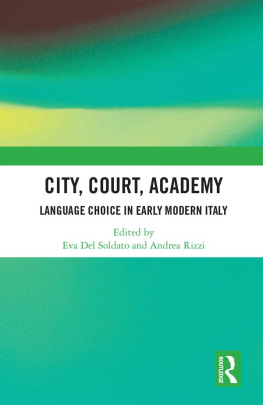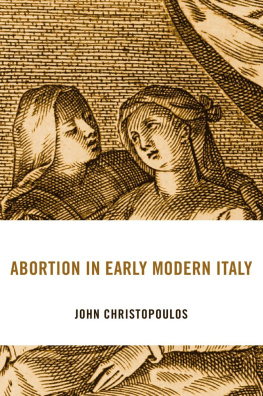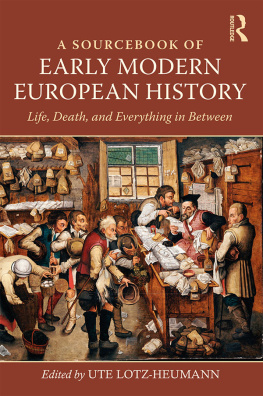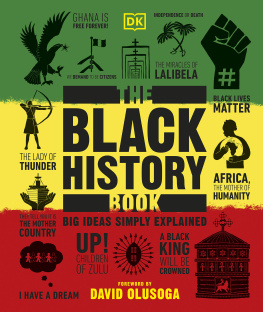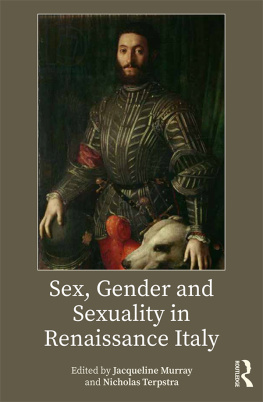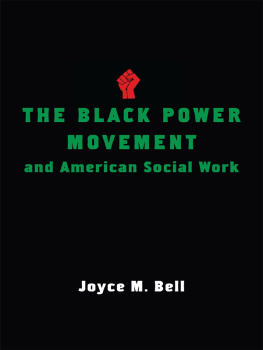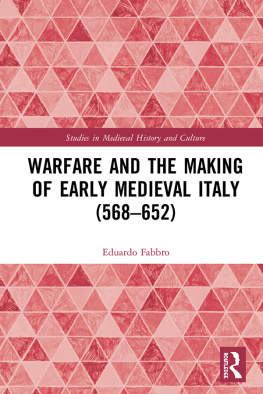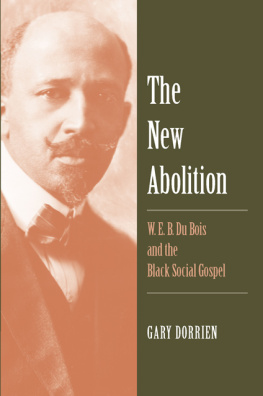Black - Early modern Italy: a social history
Here you can read online Black - Early modern Italy: a social history full text of the book (entire story) in english for free. Download pdf and epub, get meaning, cover and reviews about this ebook. City: London;Italië;Italy, year: 2001;2011, publisher: Routledge, genre: Politics. Description of the work, (preface) as well as reviews are available. Best literature library LitArk.com created for fans of good reading and offers a wide selection of genres:
Romance novel
Science fiction
Adventure
Detective
Science
History
Home and family
Prose
Art
Politics
Computer
Non-fiction
Religion
Business
Children
Humor
Choose a favorite category and find really read worthwhile books. Enjoy immersion in the world of imagination, feel the emotions of the characters or learn something new for yourself, make an fascinating discovery.
- Book:Early modern Italy: a social history
- Author:
- Publisher:Routledge
- Genre:
- Year:2001;2011
- City:London;Italië;Italy
- Rating:4 / 5
- Favourites:Add to favourites
- Your mark:
- 80
- 1
- 2
- 3
- 4
- 5
Early modern Italy: a social history: summary, description and annotation
We offer to read an annotation, description, summary or preface (depends on what the author of the book "Early modern Italy: a social history" wrote himself). If you haven't found the necessary information about the book — write in the comments, we will try to find it.
Black: author's other books
Who wrote Early modern Italy: a social history? Find out the surname, the name of the author of the book and a list of all author's works by series.
Early modern Italy: a social history — read online for free the complete book (whole text) full work
Below is the text of the book, divided by pages. System saving the place of the last page read, allows you to conveniently read the book "Early modern Italy: a social history" online for free, without having to search again every time where you left off. Put a bookmark, and you can go to the page where you finished reading at any time.
Font size:
Interval:
Bookmark:

Early Modern Italy: A Social History is a fascinating survey of society in Italy from the fifteenth to the eighteenth century from the Renaissance to the Enlightenment. The early modern period was an exciting phase in the history of Italy, with the emergence of great artists, sculptors and architects and the flowering of culture generally. However, during this period Italy was not one coherent political unit, but was divided into many different states. Such divisions affected the population economically, socially and linguistically, but this social history considers patterns across these divisions, and contrasts within states.
Early Modern Italy covers the whole of the Italian peninsula from the Venetian Republic, Milan and Florence to Rome, Naples and the rural Italy of Calabria and Campagna. It spans a multitude of themes, including:
- the effects of geography on population and social developments
- the relationship between urban and rural Italy
- land systems, agriculture and rural communities
- urban society from professionals and artisans to pedlars and prostitutes
- the family and the household
- the church and religious life
Early Modern Italy is crucial to the understanding of the diversity, conflicts and incompatibilities from the past that still affect the stability and fragility of united Italy today.
Christopher F. Black is Senior Lecturer in Modern History at the University of Glasgow. He is author of Italian Confraternities in the Sixteenth Century (Cambridge, 1989).
Professor of Modern History, University of Cambridge
- A SOCIAL HISTORY OF MODERN SPAIN (1990)
Adrian Schubert - EARLY MODERN SPAIN: A SOCIAL HISTORY (1999)
James Casey

First published 2001
by Routledge
11 New Fetter Lane, London EC4P 4EE
Simultaneously published in the USA and Canada
by Routledge
29 West 35th Street, New York, NY 10001
Routledge is an imprint of the Taylor & Francis Group
This edition published in the Taylor & Francis e-Library, 2001.
2001 Christopher F. Black
All rights reserved. No part of this book may be reprinted or reproduced or utilised in any form or by any electronic, mechanical, or other means, now known or hereafter invented, including photocopying and recording, or in any information storage or retrieval system, without permission in writing from the publishers.
British Library Cataloguing in Publication Data
A catalogue record for this book is available from the British Library
Library of Congress Cataloging-in-Publication Data
Black, Christopher F.
Early modern italy : a social history/Christopher F. Black.
p. cm. (Social history of Europe)
Includes bibliographical references and index.
1. ItalySocial conditions. 2. ItalyEconomic conditions. 3. ItalyHistory1492-1870. I. Title. II. Social history of Europe (Routledge (Firm))
HN475.B553 2000
306.0945dc21 00-055333
ISBN 0-415-21434-3 (pbk)
ISBN 0-415-10935-3 (hbk)
ISBN 0-203-13479-6 Master e-book ISBN
ISBN 0-203-17976-5 (Glassbook Format)
FOR ELIZABETH AND TRICIA FOR PAST SALVATION AND GRAND-DAUGHTER SOPHIE HOPE FOR THE FUTURE
A social history or the history of society is concerned mainly with the interrelationships of individuals with each other, and the factors that affected these interrelationships. These factors include the physical environment, the political, legal and institutional frameworks, agreed roles of behaviour, conventions and accepted ways of behaving, languages and other means of communication. There are different kinds of grouping of individuals: family and household, hamlet and city, work-places, guilds, confraternities, religious houses and so on. Social inter-relationships may be seen in terms of conceptual belonging or exclusion: nobility, order, class, rich and poor, clerical and lay, national groups. A general history like this can suggest to readers an abundant choice of ways of looking at society, and can include both wide-angle and microscope lenses. Readers then can follow their own inclinations and interests.
Social history has to be selective, by topic and geographical area. Each issue cannot be generalised and illustrated for all of the Italian peninsula, but my discourse should suggest some similarities and contrasts geographically. Current historical knowledge, understanding and perceptions and my own biases mean that more will be exemplified from north-central Italy than from the south, though the latter should have its share of attention in discussion of the rural scenes or household and kinship relations. In choosing examples, and highlighting certain historians work, I have tried to represent different approaches and biases of other historians in favour of mentalities (more aptly the French mentalits), feminism, social anthropology, physical determinism, microhistory and so forth. Readers may well detect that chapters speak with different dialects. The authorial voice has many tones, including discords and dissonance. When not trying to convey others approaches, I have favoured socio-religious matters rather than supposedly quantifiable economic dimensions. Social history concerns all in society, not just the lower orders and class warfare. I have tried to give a due share to womens history, but integrated into the whole, and not segregated into a separate chapter. The works of Fernand Braudel, and of historians working around the French periodical Annales: histoire, sciences sociales, have had their impact when dealing with physical environment, structures, mentalits, but not when over-emphasising statistics, or excessively discounting the importance of events and individual actors. Other aspects seem influenced by Natalie Zemon Daviss work and approaches (though on France rather than Italy), I use works of art as evidence alongside written documents conventionally utilised by historians, though word limitations have curtailed sections that might have used them more, and have prevented discussion of problems of reading the different kinds of evidence.
I am writing primarily for the English-speaking world, not the Italian (though I am mindful of the possibilities of an Italian version), in anticipation of a student and beginner audience (including that mythical beast, the General Reader). I also want to help professional academic readers with expertise elsewhere who want some guidance on early modern Italy, whether their primary interests are post-unification Italy, other parts of early modern Europe or the wider world. But I also consider Italian specialists whether historians of certain cities and regions, or experts in art history, literature, music, political theory who want some guidance about other areas, whether geographical or topical (while they can either challenge or educate me from their expertise). Italianist friends and contacts (as particularly at some recent transatlantic conferences) have encouraged me to consider them as well.
This last readership factor has added to the complications of bibliography, reference notes, language and detailed exemplification. The literature on virtually all I have covered is potentially large. Constraints of space mean that I have only been able to use a fraction, and to cite even less. I have included some archival references for the benefit of specialist colleagues.
Font size:
Interval:
Bookmark:
Similar books «Early modern Italy: a social history»
Look at similar books to Early modern Italy: a social history. We have selected literature similar in name and meaning in the hope of providing readers with more options to find new, interesting, not yet read works.
Discussion, reviews of the book Early modern Italy: a social history and just readers' own opinions. Leave your comments, write what you think about the work, its meaning or the main characters. Specify what exactly you liked and what you didn't like, and why you think so.

